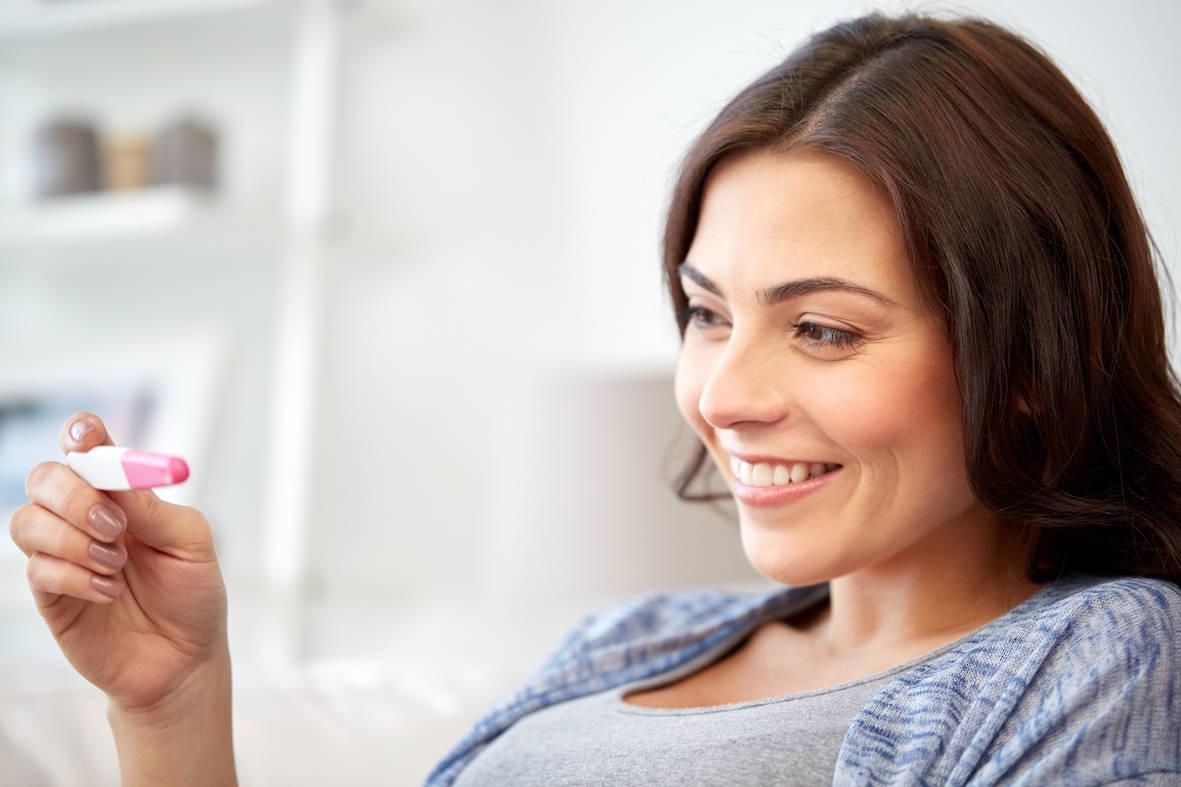When you’re trying to conceive, being able to track your body’s changes each month as well as knowing how to work with your body can help you achieve your dream of having a baby.
The very first step to getting pregnant is getting the timing right by understanding when you ovulate.
So what is ovulation and when is the best time to get pregnant?
Ovulation
Ovulation occurs when hormonal changes in your body signal your ovaries to release a mature egg. This occurs in the middle of your cycle, between 12 and 16 days before your period is due. The process of ovulation is complex:
- As you approach ovulation, your body increases production of the estrogen hormone. Estrogen causes the lining of the uterus to thicken and helps to create a sperm-friendly environment.
- Increased estrogen levels cause the release of high levels of the hormone LH (luteinising hormone). This is called the LH surge.
- The LH surge triggers the release of the egg from the ovaries within 24 to 36 hours. High levels of LH are a good predictor of fertility.
- The egg travels from the ovary down to the fallopian tube, where fertilization may take place if sperm are present.
- Once the egg is released, it remains viable for around 24 hours. If fertilization doesn’t occur, the lining of the uterus will break down and you will get your period.

Timing is Everything
When it comes to ovulation, timing is crucial. The fertility window refers to the time when it’s possible for you to fall pregnant.
Sperm can remain viable for 5 days, so the fertility window occurs during the six days leading up to and including the day of ovulation. Outside of this fertility window, the chances of falling pregnant are near zero.
Ensuring that you time intercourse to coincide with the fertility window is vital for falling pregnant.
How Can You Tell When You Are Ovulating?
There are tools that can help you tell when you are ovulating as well as signs you can look out for:
- You can use a kit that predicts the rise in LH 24 – 36 hours before ovulation. This is the most accurate method of predicting ovulation.
- You can take your basal body temperature each morning. Basal body temperature rises when your fertility window ends, but it can help you to understand your cycle.
- Observing your cervical mucous can tell you when you are ovulating. During your fertility window your mucous will usually be clear, slippery and stretchy.
- Some women experience ovulation pain. This is usually a sharp pain on one side of the lower abdomen that may be short-lived or last from 24 – 48 hours. It occurs at the time of ovulation.
Tracking Your Cycle
When you’re trying to conceive, tracking your cycle can help you pinpoint when ovulation occurs. It will also help you and Dr Ljiljana understand any issues you might be having with fertility.
- Day 1 of your cycle is the beginning of your period. The last day is the day before your next period starts.
- Ovulation occurs 12 to 16 days before your period is due.
- Your fertility is at its best in the 3 days leading up to ovulation. So if your cycle is 28 days long, your most fertile days will be days 12, 13 & 14.
- Keep an accurate record of your cycle to ensure you know when your fertility window is.
- Use an online ovulation calculator.
Factors That Affect Your Chances of Falling Pregnant
There are many things that can affect your fertility, but some of the more common ones include:
- Getting older.
- Being overweight or underweight.
- Lifestyle factors such as extreme exercise, smoking or alcohol use.
- Medical conditions, disease or injury to the reproductive organs.
- Medical treatments such as chemotherapy or radiation therapy.
- Genetic factors such as a history of early menopause.
- Sexually transmitted infections.
- The health of your partner’s sperm.
Natural Fertility
Treating nutritional deficiencies, having a healthy diet, and lifestyle changes can boost your fertility. Herbal remedies can also be useful and getting the right hormonal balance is crucial. Dr Ljilijana can guide you with what will work best for you.
The Fertility Diet
The fertility diet helps provide your body with the specific nutrients you need to fall pregnant, stay pregnant, and deliver a healthy baby. What you eat today will affect the health of your eggs in 90 days’ time. The food you eat can balance your hormones and it provides the building blocks for growing a baby. Dr Ljilijana can discuss with you the right diet to achieve natural fertility.
Using Clomid
Clomid (clomiphene citrate) stimulates your ovaries into releasing eggs. About 70% of women will ovulate in response to Clomid, and of those, approximately 40% will fall pregnant. Tracking your ovulation cycle and using Clomid gives you a better chance of conception.
Fertility Treatments with Dr Ljilijana
Dr Ljilijana offers a variety of tests and treatments to help you with your fertility. These include:
- Treatment for endometriosis.
- Removal of fibroids.
- Management of polycystic ovarian syndrome.
- Testing for conditions affecting fertility including thyroid problems,
immunologic disorders, and diabetes. - Testing the health of your partner’s sperm
- IVF treatments
- Advice on natural fertility
If you would like to learn more about fertility treatments, please feel free to give Dr Ljiljana a call or complete the form in the Contact Us section of our website.